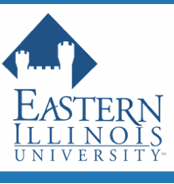Facing History’s Approach to Civic Education: Centering Identity to Build Reflective, Inclusive Classroom Communities (virtual double session)
Preferred Delivery
Virtual
Length of Presentation
90 minutes
Start Date
20-10-2023 12:30 PM
End Date
20-10-2023 2:00 PM
Document Type
Workshop
Abstract
Facing History & Ourselves understands that effective civic education depends not only on the critical study of history, but also on creating learner-centered classrooms that value and incorporate students’ identities; classrooms where young people feel seen and heard and experience a sense of belonging that allows them to thrive. This session will engage with resources to build relationships with and between students, and to nurture an inclusive classroom community that practices thoughtful and meaningful dialogue, thinks critically about issues that matter, and promotes students’ social, emotional, and academic success. By making democratic values visible in the classroom and by recognizing that the social world of young people is already a civic space, our student-centered approach makes civic learning more authentic and relevant.
Description
Adolescence is a time when young people are exploring who they are, how they understand the world, and how they fit into society – they are developing their “civic dispositions.” Facing History & Ourselves’ outlook on civic education builds on our conviction preparing young people to “govern themselves democratically” involves the mind, heart, and conscience. Our approach is holistic and integrated, recognizing that deep civic learning is interdependent with students’ social-emotional development and access to equity. We believe that a good global citizen possesses tolerance, empathy, and respect for human dignity; the skills to seek truth and communicate across difference; a capacity for ethical reflection; a sense of the common good; a habit of engagement built on a belief that they can make a difference; and an understanding that each person’s choices matter.
This session for middle and high school social studies and humanities teachers will engage participants with resources to build relationships with and between students, and to nurture an inclusive classroom community that practices thoughtful and meaningful dialogue, thinks critically about issues that matter, and promotes students’ social, emotional, and academic success. Additionally, the session invites self-reflection and an understanding that teaching is an essential contribution to democracy.
In this session, participants will:
-
Practice democratic strategies to generate open, supportive, and reflective communities that foster students’ sense of belonging and agency
-
Experience pedagogy that centers student identity, invites perspective taking and ethical reflection, develops literacy and critical thinking skills, and expands students’ civic capacities and global perspectives
-
Explore tools that promote self-reflection and support adolescents’ social and developmental needs by helping them better understand themselves as learners, peers, and members of the broader communities in which they live
Participants will receive a copy of the Facing History & Ourselves publication: From Reflection to Action: A Choosing to Participate Toolkit. (300 words)
Creative Commons License

This work is licensed under a Creative Commons Attribution-Noncommercial-No Derivative Works 4.0 License.
Facing History’s Approach to Civic Education: Centering Identity to Build Reflective, Inclusive Classroom Communities (virtual double session)
Facing History & Ourselves understands that effective civic education depends not only on the critical study of history, but also on creating learner-centered classrooms that value and incorporate students’ identities; classrooms where young people feel seen and heard and experience a sense of belonging that allows them to thrive. This session will engage with resources to build relationships with and between students, and to nurture an inclusive classroom community that practices thoughtful and meaningful dialogue, thinks critically about issues that matter, and promotes students’ social, emotional, and academic success. By making democratic values visible in the classroom and by recognizing that the social world of young people is already a civic space, our student-centered approach makes civic learning more authentic and relevant.


Speaker Information
Sarah Shields (she/her) is a Senior Program Associate and the Partner Schools Network Lead at Facing History and Ourselves. Prior to joining the Chicago office of Facing History in 2013, she was an assistant principal and nationally board-certified high school social studies teacher in Chicago Public Schools. Sarah's work in CPS focused on drop-out prevention, successful matriculation to high school, and cross-cultural relationships in schools. Sarah earned a B.A. in History from UCLA, a Master of Arts in Teaching Secondary Social Studies from The American University in Washington, DC, and an Education Specialist degree from National-Louis University in Chicago.
Uzma Siddiqui (she/her) is a Program Associate at Facing History and Ourselves in Chicago. Before joining the Facing History staff in 2022, she was a high school educator for 14 years, having taught various iterations of history and humanities in public schools in suburban Boston, MA and Dallas, TX. She also worked in curriculum and assessment development and served as a cultural competency facilitator for one of her past schools. She has a B.A. in Historical Studies from the University of Texas at Dallas and an M.Ed. from Harvard University.